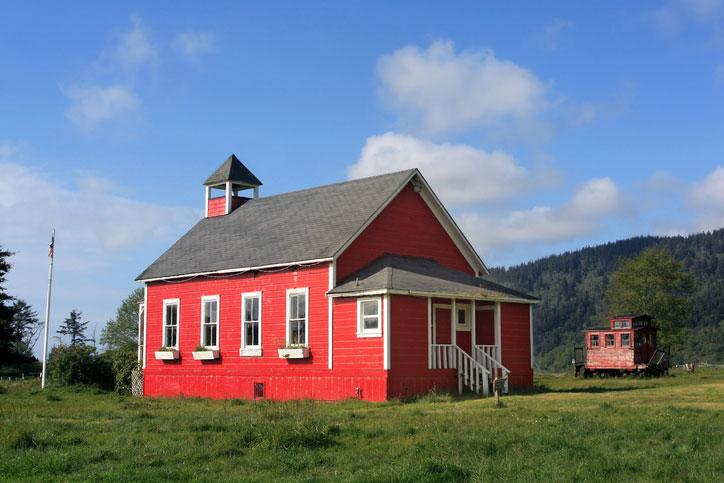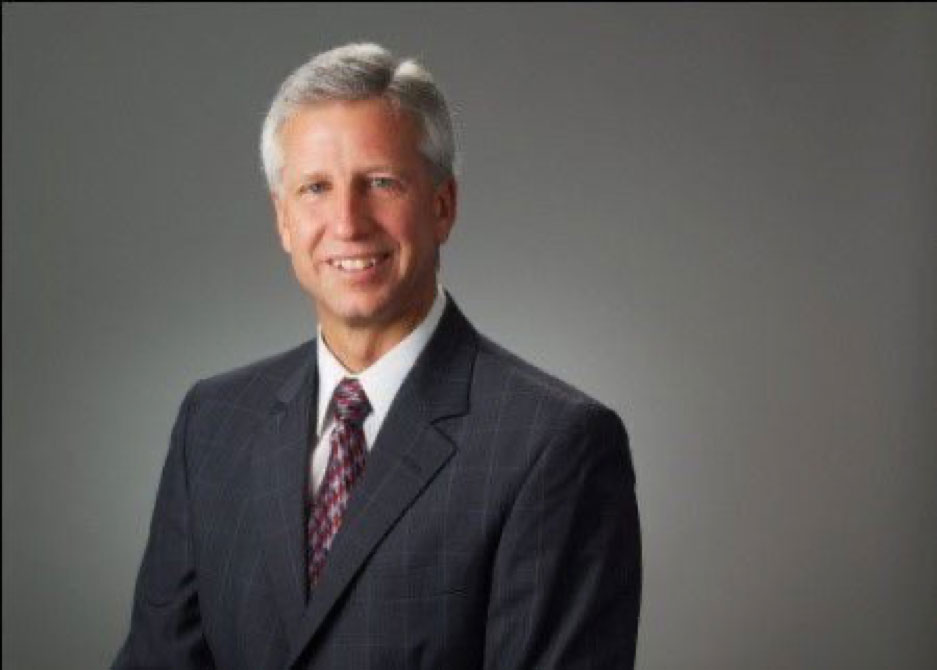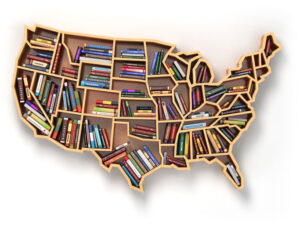Why Public Education is Worth Fighting For – A Counterpoint to All the Negativity Out There About the State of Our Schools
2/1/2022

Part 3 in a 3-Part Series - "A journey with a mission attached!"
In this three-part series, we will explore the current fight to maintain public education, outline some strategies for ways we can improve the current situation, and look at some of the people that have made strides in the fight to save public education across the nation.
The impact of one's words and actions only go as far as their influential reach. We may hear what people are saying, but are we listening?
I admit, I sometimes hearing a lot of noise, but often it goes in one ear and out the other. I may see someone talking, but I already have a preconceived notion that I do not need to pay attention.
An opinion I hear from a lot of families, community members, educators, and even school board members across my great state of Montana is "Public education is eroding." I am listening because I want to learn more. Montana is only one of 50 states, but this rhetoric about an eroding public education system is rabid, and it's being heard all across the country.
But, is the state of public education really that bad?
If we focus on all the negatives occurring in society, project them into our schools, and then discuss it with all the people around us, we can gather a plethora of reasons why public education may be failing.
Why do we do this?
What if we flip the script, play's devil's advocate, and highlight all the great things going on in our public schools?
In fact, I will double down, and stake my career on a mantra I want to yell out loud:
"For the average American, public education cultivates 99% or more of the positive attributes we want to see in our children, that we want to see in the neighbors that live next door, and that we want to see in our future leaders!"
Take a Moment to Think About Everything Our Public Schools Have Done For Us
How do we get all stakeholders, including parents who have their children in a private school, to believe in the power of strong public schools…the fabric of what this country is built upon? Private school is a choice, while many who attend public school do not have that choice. Everyone in our great country must advocate for strong public schools.
Let's find out from one of the most influential leaders in the state of Montana who is well into his fourth decade of education, Dr. Kirk Miller. You can easily use Montana as your lens for a larger nationwide discussion. Even though Montana may be considered rural, or even frontier, the sentiments play out similarly across the United States.
 Let's learn a little about Dr. Kirk Miller. He is currently the Executive Director of School Administrators of Montana (SAM) in Helena, Montana. A position he has held for over 10 years. Dr. Miller was previously a superintendent for nineteen years in three different school districts: Cascade Public Schools, Havre Public Schools, and Bozeman Public Schools. Prior to being superintendent, he was principal in Shepherd, Montana, as well as a teacher in Havre and Livingston, Montana.
Let's learn a little about Dr. Kirk Miller. He is currently the Executive Director of School Administrators of Montana (SAM) in Helena, Montana. A position he has held for over 10 years. Dr. Miller was previously a superintendent for nineteen years in three different school districts: Cascade Public Schools, Havre Public Schools, and Bozeman Public Schools. Prior to being superintendent, he was principal in Shepherd, Montana, as well as a teacher in Havre and Livingston, Montana.
Do Miller profoundly describes his pathway to his current position as a…
"A journey with a mission attached!"
I was able to sit down with Dr. Miller and ask some poignant questions pertaining to public school advocacy. The questions are bolded below.
What is your perception of public education in the United States and specifically, Montana?
"I truly believe in all the work that I've done, and all the study that I've done, that our public education system and public schools are the foundation of our Democratic Republic.
The foundation of our democracy and the greatness of the United States of America as a nation has been built upon that foundation of a sound public education system, that is intended to meet the needs of every child and meet the needs of every citizen to help educate the populace.
I mean, that is what our founding forefathers and mothers said, that's what our constitution said, why the system was built, and why it has been put in place.
I just truly believe that it [public education] is the difference-maker. It matters not where you came from, how you grew up, or whether you were well-to-do or not well-to-do. Whatever your angle in life is, the access to a great public education system allows an individual to define themselves … and make a good life for themselves and their family in the United States. That is the broad picture.
In Montana, I feel so fortunate for having been able to work in what I would characterize as one of the best public education systems in the United States, one that has been built [under] the local control of our communities - because of their want to be able to provide a quality education to their children regardless of the size of the community or regardless, again, of all those different statuses and boxes we put people into.
I really feel that for a long time, Montanans have pulled together to nurture and take care of the public schools, because they know how valuable it is to the way of life in Montana, and to being able to educate our kids right here and have them become successful in whatever they choose to do next."
How do you advocate for public education?
 "I served for fourteen years on the Montana Board of Public Education and six years as chair, and I guess that it was the foundation of learning … the role of education is in connecting with the government system through the legislature, through the administrative branch, the Governor's office, and also through the courts.
"I served for fourteen years on the Montana Board of Public Education and six years as chair, and I guess that it was the foundation of learning … the role of education is in connecting with the government system through the legislature, through the administrative branch, the Governor's office, and also through the courts.
For me personally, I have always considered strong advocacy for a good public education system with all of those varieties of stakeholders and audiences is of the utmost importance. My work here at School Administrators of Montana [SAM], being basically a statewide advocate, is based upon a platform. The platform of advocacy that's developed by all administrators in the state, which is important for the education of our kids. It has really been the right way to advocate.
Personally, how do I apply that [platform] while I use all of the skill sets that we have available is based upon building relationships with those … audiences. You have to have a relationship with the legislators that are currently serving, you have to have a relationship with the Governor's office, you have to have a relationship with the Office of Public Instruction, and those statewide officials that have a say in what our education system looks like.
The process is making sure that you have the ability to collect input from the constituents that you serve so that you can advocate appropriately for what the belief system is. Now SAM's delegate assembly defines the latest iteration.
When I was a school superintendent, I certainly paid attention to what our community values were … and what the school board wanted to advocate for. Nonetheless, a pretty sound process is used with delegate assembly to develop an advocacy platform for what SAM believes in. This has been developed by building relationships to be able to influence legislation … or to influence policy-making and rulemaking.
Advocacy is one of the strategic plan goals of SAM: administrators having a seat at the table. I strongly believe that we need to get folks that are qualified and understand what's happening in schools to the rulemaking table. They can then get … involved in the legislature, in all of those different areas … through a variety of vehicles."
Advocacy is in the soul and I think it is largely based upon the ability to build collaborations and relationships.
Devil's advocate - what happens if we don't advocate for public education?
 "I think we are seeing it happen right now across the United States. I think what it has done is it outlined the importance of advocating for public education.
"I think we are seeing it happen right now across the United States. I think what it has done is it outlined the importance of advocating for public education.
We are seeing all kinds of scenarios that are being developed at the federal level and with large dollar advocacy groups to take the last entity, the last bastion that is left in the United States, that's not created for profit.
The public schools in America were created for the public good, and not to be a profit center. They were intended to create an informed citizenry so that we can all have a good life together."
What we see happening in the United States right now is that the last bastion that's out there for the public good, is trying to be privatized for-profit and all kinds of political entities are forcing the issues and creating scenarios that would develop disdain for the public education system. The propaganda that is being delivered right now, is leading to a death by a thousand cuts. Never before have I felt so strongly that it is time that we … get the attention of the public [and promote] the value of public schools.
You said the devil's advocate, I think right now we're seeing the real need for why it's so important for us to advocate for having a sound and robust, locally controlled public education system, so that it meets the needs of the individuals all across the United States.
What do you wish everyone understood about public education? What can they do to be stronger advocates?
"I would wish that everybody understood the fact that a robust public education system has done exactly what I described at the beginning. It has created the greatest nation in the world and it's allowed the diversity and talents of the individuals that are a part that - our citizens of the United States - to take their talents and do good, whether that be economic good or cultural good.
The bottom line is that those local public schools in every community across America are the foundation for why that happens. If I could wish for something that everybody understood, it would be the realization of how important it is to keep a very robust, and the very best, system that we can create locally for our public schools. It really does have to do with the well-being of our nation and the well-being of every single individual across the United States.
We have a SAM strategy that has been developed that is around everything that I talked about. It is a conglomeration of gathering the SAM Governance Team to talk about the situation that we're currently in, and it feels like we're under attack. What we want to do is to change that dialogue... We really must all work together to promote the value that your school brings to your community.
There are four planks that ended up being added to that (SAM advocacy agenda) …
-
- Your community school is the safe and cultural center of academic and social emotional well-being for your children. It needs to be supported.
- Your community school is the economic driver of nearly every community across the United States.
- The schools are the largest employer and if you look at the research and you just pay attention, you know that that local school is the community center for the social gatherings for communities all over the United States.
- Your community school is also at the center of the pride that we develop in the performance of our kids. The pride of a community, all across the United States, exists as a result of all of us rallying around and supporting what we do to provide a great education to our kids. It is their skill-set displayed in public that then becomes "the entertainment" for the community. Whether it is the Christmas programs that are going on in your school, or it's the state volleyball tournament, concerts and arts; the list goes on and on.
We need to all be working together - all of the education community - and helping to promote the value of what the best public schools in your community bring to the community. We need to get the attention of our town fathers and mothers. They believe that as well, and I truly believe that most of the citizens of the United States are doing everything they can to support a good education for their children, and every public school in their community.
The community school is the right thing for educating their children and their voice needs to be heard so that a vocal minority that's out there, which is being pumped up as a result of all the politicization that's going on right now, doesn't end up ruling the day and actually causing harm to our ability to hire staff in our schools; to keep our schools going. That is my wish list!
To summarize, I guess the wish list is how we need to get the attention of the town fathers and mothers and communities all across the United States of the value their public school brings to their community and have them continue to [raise] support through all of the avenues that are out there. Whether that be a levy to support a school district, or their attendance and their vocal support … I think it is at the heart of saving our public education system across the United States, especially in Montana."
CONCLUSION
 Dr. Kirk Miller will be retiring at the end of this school year. He has not only been one of Montana's major players in educational reform and advocacy for over three decades, but he has had a seat at the table nationally. He is well known among chief state executives and education leaders across the United States.
Dr. Kirk Miller will be retiring at the end of this school year. He has not only been one of Montana's major players in educational reform and advocacy for over three decades, but he has had a seat at the table nationally. He is well known among chief state executives and education leaders across the United States.
I ended this conversation by stating how sad, yet excited, I was to learn of his retirement. I thanked him for his lasting impact on education, his friendship with so many of us, and educational advocacy all across Montana.
One of Dr. Miller's best qualities is his ability to listen, then act. He takes time for everyone. I remember him reaching out to me as a new administrator and connecting by reassuring me that I could do this…this beautiful job of educating our youth. Like many others, he will be missed in his current capacity.
Many of us were thrilled to hear him say, "I may be retiring, but I will not be out of education." He explained that as a retired educator, he can now advocate in different ways, and possibly have even more impact.
One of Dr. Miller's greatest accomplishments has been creating a mentoring program for administrators. He has built up a cadre of retired administrators that are paired with practicing administrators in the field. The emphasis is on relationship building and the ability to find resources and advice to support administrators in their day-to-day leadership positions. The power of this is the fact that it isn't only for new administrators, but any administrator.
Both Kirk and I believe there will not only be a shortage of teachers in the near future, though there is likely to be a shortage of administrators. Being able to empower and nurture new leaders should be on all of our plates as educational leaders! His legacy will be continued through this program.
Let's conclude with the heart and soul, ending with advocacy!
- Learning How to Say No and Set Boundaries with Parents - November 21, 2022
- If You Had Only One Behavior Strategy to Use in Your Classroom, What Would It Be? - September 26, 2022
- Live Your Code: 7 Strategies That Will Help You Be the Most Effective Educator You Can Be - August 15, 2022










